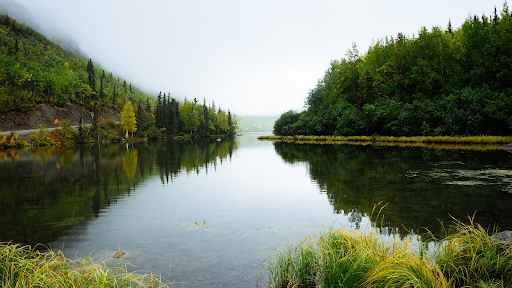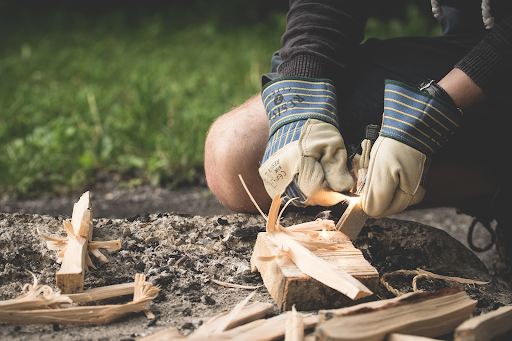July 08, 2019
Is Wilderness Therapy Right For Your Teen?

Teen years are the years of massive growth in all areas because this is a critical period of brain development and a time where the individual is truly defined. With this development comes an enhanced desire to explore and to test limits.
95% of brain development is completed by age 5 but the most advanced parts of the brain are not complete until age 25. The prefrontal cortex responsible for mental judgment, emotional control, rational decision making, impulse control, and critical thinking does the bulk of its maturation from ages 12 to 20. This means the teen years are about growth, personal discovery and finding a way into the world, that is naturally going to come with some bumps and bruises. This is normal.
So, are the normal, natural rebellious transitions that come with the development of the teen brain and acted out in mildly rebellious behavior signs that a teen needs Wilderness Therapy? Most likely not.
Phases
Psychologists will explain that kids go through phases. If an adult takes a moment and thinks back to when they were a kid, often times they can recognize the behavior of their child as something they themselves went through when they were growing up. Kids have the natural urge to rebel, claim their own independence, fall quickly and fully in love, fall equally quickly and fully out of love, explore their emotional spectrum, be weird, unique and slowly grow into an adult. If a parent truly takes time and pays attention to their child as these phases come and go, they are sure to see them as natural, expected and, most often, very familiar. It’s all part of growing up. These phases, these growing pains, as they are sometimes called, are not indications that the child needs to be sent to wilderness therapy.
On the other hand, if parents find these words sound familiar; “We just don’t know what to do for him/her anymore.” “He/she has changed, we don’t even recognize the person we see any longer.” “I’m terrified of what will happen to him.” In these cases, Wilderness Therapy may be something to consider.
Effective
Wilderness therapy, taking a child out of their familiar and putting them in an emotionally difficult and challenging situation is a huge decision. One not to be taken lightly and one that requires serious thought and information gathering before it’s done.
This kind of therapy has proven effective for kids with drug problems, discipline problems, and social problems that may lead to or have led to run-ins with the law. This is the kind of therapy that a parent embarks on when they’ve made statements like the ones above. This is also the kind of therapy that most effective when it is engaged together when the family is included in the teen’s progress.

Raising a Future Adult
When a parent is raising a child, they aren’t raising them for the next moment, they are raising the child toward the adult they will become. They have to look to the future and think about the kind of adult they are putting into the world. Hopefully, they’re raising compassionate, caring, intelligent, giving adults. When a parent watches their child grow, watches them play with friends, interact with other children, interact with adults, they can get a sense of what the child is going to bring into the world.
A parent can see when their child cares when their child has sympathy, and empathy and understanding. As the child grows, the parent pays attention and helps to guide the child toward better adulthood. That’s what raising a child is about and that’s why it is not easy at all.
However, if the parent sees in their child drastically unfamiliar phases, behavior that is so foreign to what the parent himself went through growing up, so antithetical to the kind of behavior the parent has tried to instill in the child, this now becomes a cause for true concern.
It’s vitally important to understand the difference between a normal child growing to adulthood behavior and behavior that can be termed as aberrant, dangerous or self-destructive. This distinction is going to play an integral part in a parent deciding if Wilderness Therapy is right for their child or even something they need to consider at all.

Into the Woods
If a parent finds the behavior of their child unfamiliar and they fear that behavior is going to follow them into adulthood or worse, keep the child from growing into an adult, then Wilderness Therapy is a very effective path to follow. Among other things, this type of therapy addresses trigger points and situations in the child’s real world that may have caused the kind of behavior that has become worrisome.
Again, wilderness therapy is an extremely effective form of experiential therapy that has been shown to address and fix problems in teens who are struggling. It also gives them tools to carry with them when they leave the therapy and continue on in life.
Wilderness therapy is a subset of experiential education/therapy where the participant learns by doing. This form of therapy is helpful for teens because it removes the electronic gadgets, social media and negative peer groups that may be the triggers of the teen’s dangerous behavior. This hands-on learning can be very effective especially when more traditional, one hour per week, sessions with a therapist, seem to be of no help. For those who question the psychological relevance of wilderness therapy, it may be comforting to know that it has its origins in the experiential school of psychology which includes Gestalt Therapy and the Humanistic Paradigm.
Still, parents may wonder if this type of therapy is right for what their teen is going through. Speaking with a Wilderness Therapy program is a good idea when this question arises. Places like Second Nature have trained therapists, parent coaches, and an admissions team who have years of experience dealing with all forms of teen development and they can give clear advice as to whether wilderness therapy is truly the right choice for the situation.
Independent Educational Consultants are also a fantastic option. Educational Consultants are independent from any one program or school and can counsel families in the selection of potential schools, institutions or programs.
Be Prepared
It’s important to have all questions and concerns in order before speaking with a wilderness therapy program. If a parent has come to this point with their child, they will naturally be upset, confused and somewhat unfocused. Being as clear and detailed as possible when seeking advice is important. Again, wilderness therapy is not a situation to be entered into casually, it is expensive and it can be jarring for the teen. Having the clearest perspective when making the choice to send a teen into wilderness therapy is very important.
There is no doubt that wilderness therapy is effective for teens who have addiction problems, who have lost their way or are in danger of causing major or permanent destruction to their lives and the lives of those around them. It is a proven, well-documented form of therapy that has shown incredible results for so many people.
If a parent has concerns or fears about their teen and they have exhausted all other measures, getting in touch with a Wilderness Therapy Program, like Second Nature, is an excellent place to start.



